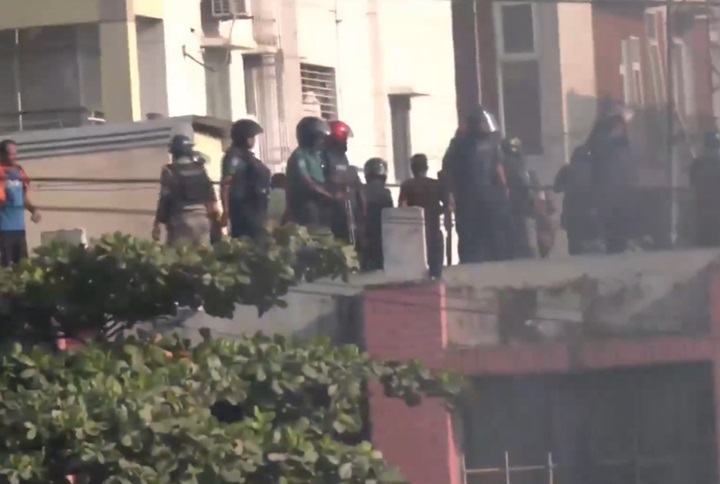The political landscape in Bangladesh has reached a boiling point, as protests against Prime Minister Sheikh Hasina intensified dramatically on August 4, 2024.
What began as a student-led movement against a contentious job quota system has erupted into widespread violence, resulting in over 70 deaths and numerous injuries. The government’s handling of the situation, marked by the mobilisation of its supporters and stringent measures, has drawn sharp criticism and heightened international scrutiny.
The unrest in Bangladesh traces its roots to grievances over the job quota system, which many students and young professionals believe is unfair and discriminatory. The system, designed to reserve a significant portion of government jobs for certain groups, has been a flashpoint for discontent, seen by many as perpetuating inequality and limiting opportunities for merit-based employment.
Initially, the protests were peaceful, with students rallying for reforms. However, as the demonstrations grew, so did the tensions between the protesters and the authorities. Clashes soon broke out, leading to violent confrontations that have since escalated into a broader anti-government movement.

The government’s response to the escalating protests has been widely criticised. In an attempt to counter the growing unrest, the authorities mobilised pro-government supporters, a move that many believe exacerbated the violence. This decision, combined with a heavy-handed approach by law enforcement, has led to deadly clashes on the streets of Dhaka and other major cities.
The situation further deteriorated with reports of arson attacks on public infrastructure and police stations. Such incidents have led to dozens of fatalities and widespread damage, deepening the sense of crisis. In an attempt to control the chaos, the government imposed a curfew and disrupted internet services, measures that have only fuelled public anger and unrest.
As the violence spiralled out of control, calls for Prime Minister Sheikh Hasina’s resignation grew louder. The opposition has accused the government of attempting to maintain power through violent means, while the government has labelled the protesters as saboteurs intent on destabilising the country. This polarised narrative has further entrenched divisions, making a peaceful resolution increasingly elusive.
Internationally, the escalating crisis in Bangladesh has drawn significant attention. Human rights organisations and foreign governments have expressed concern over the government’s response to the protests and the rising death toll. There have been calls for restraint and dialogue, urging the Bangladeshi government to address the root causes of the unrest and to engage constructively with the protesters.
The current turmoil in Bangladesh has far-reaching implications for the country’s political stability and economic future. The violence and unrest have disrupted daily life, with businesses, schools, and public services severely affected. The economic impact is likely to be substantial, with investor confidence shaken and tourism, a vital sector, hit hard.
Moreover, the political crisis underscores deeper issues within Bangladeshi society, including governance, corruption, and the rule of law. The job quota system, while a catalyst for the current protests, is symptomatic of broader systemic problems that have been simmering for years. Addressing these issues will be crucial for any lasting resolution to the crisis.
In the face of such significant unrest, the path forward for Bangladesh is fraught with challenges. A key priority must be to de-escalate the violence and restore order. This will require restraint from both the government and the protesters, as well as a commitment to dialogue and negotiation.
The government needs to demonstrate a willingness to listen to the grievances of the protesters and to make meaningful reforms. This could include revising the job quota system and addressing broader issues of governance and corruption. At the same time, the opposition must also act responsibly, promoting peaceful protest and seeking constructive engagement with the government.
Bangladesh stands at a critical juncture. The current crisis has exposed deep divisions and systemic issues that cannot be ignored. How the government and opposition handle this moment will shape the country’s future for years to come. By prioritising dialogue, transparency, and genuine reform, there is a chance to not only resolve the current unrest but also to build a more just and equitable society.
The eyes of the world are on Bangladesh, watching to see if it can navigate this turbulent period and emerge stronger. For the sake of its citizens and its future, the country must rise to the challenge and seek a peaceful and inclusive resolution to its profound political crisis.
Support InfoStride News' Credible Journalism: Only credible journalism can guarantee a fair, accountable and transparent society, including democracy and government. It involves a lot of efforts and money. We need your support. Click here to Donate
